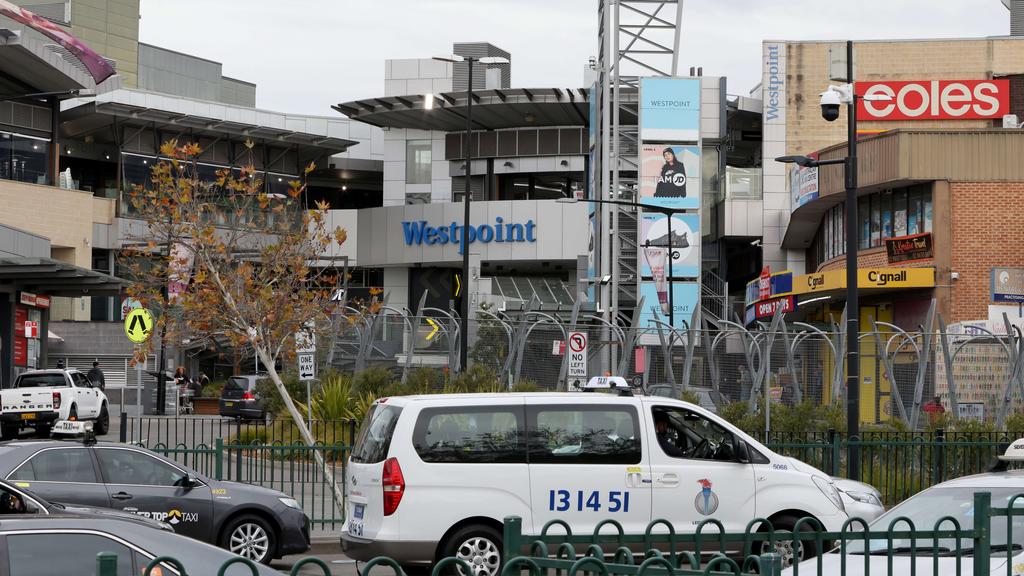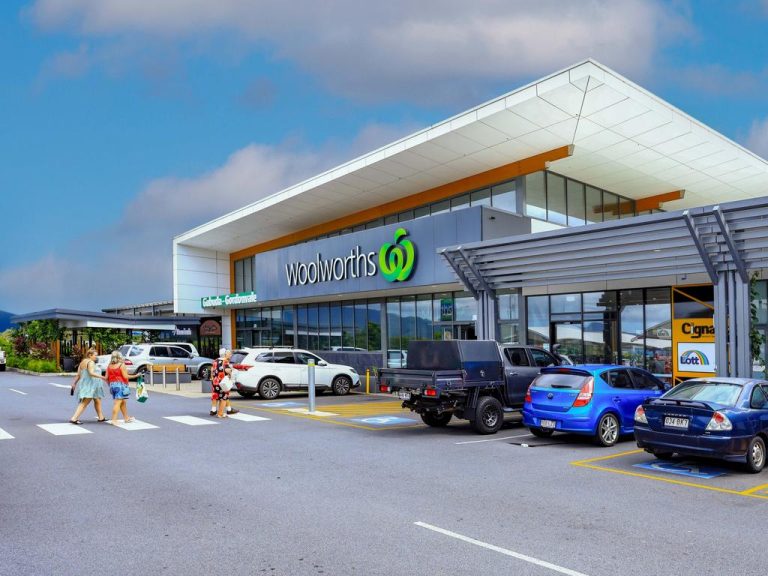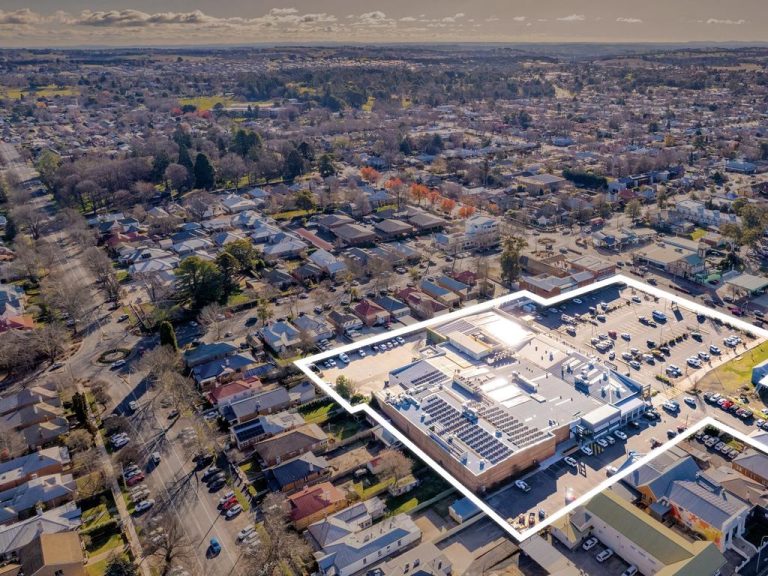QIC conducting talks to sell Blacktown shopping centre for $900m

Westpoint shopping centre in the centre of Blacktown. Picture: Damian Shaw
Real estate funds manager QIC is in talks to sell off the massive Westpoint Shopping Centre in the western Sydney suburb of Blacktown to fund house Haben and US investment group Hines for about $900m.
The move by the two funds managers is the largest in the city’s retail property sector for 20 years and shows that shopping centre values for large malls are stabilising after they were decimated during the coronavirus crisis and by the shift to online retailing.
They are being supported by the surging population and big infrastructure spending by state governments as the huge parcels they sit on are likely to be redeveloped to help address the housing crisis.
Haben has partnered with US group Hines in its play to buy the Blacktown property. They are out raising a total of $520m of equity to back the purchase.
Under the plan, Hines would put about $260m into the deal as the joint venture capital partner and Haben, which would be manager, would put $210m into the deal. A further $50m would be available to local wealthy investors, keen to bet that the market will recover from its once downbeat state.
Haben has a strong record of buying centres off large institutions and turning them around, via active management and also looking at what else the large land parcels can accommodate.
The pair’s venture is seeking to acquire a full interest in Westpoint Shopping Centre, with the landmark metropolitan asset sitting on more than 9ha of land in Blacktown’s business core.
The impending deal, being brokered by Colliers agent Lachlan MacGillivray, would be the first time in 20 years that a full mall interest in a centre of this size and scale has sold.
Blacktown is being overhauled by projects such as Walker Corporation’s multibillion-dollar Blacktown Quarter project on the doorstep of the centre. It will permanently add more than 4500 jobs and $1bn-plus annually to the Blacktown economy.
More than 87 per cent of the sprawling centre is occupied by national and listed tenants, including Woolworths, Coles, Aldi, Kmart, Target, Big W, Hoyts, JB Hi-Fi, TK Maxx, Harris Scarfe, Priceline, Rebel, Tong Li Supermarket and Uniqlo.
The centre has strong and sustained tenant performance with total centre moving annual turnover of $652.9m, and is well positioned for substantial income and rental growth as the area takes off. The buyers are planning a value-add strategy where they would reposition Kmart and Target and make cosmetic changes to the complex.
There is also a longer-term opportunity to undertake mixed-use development on part of the site where there is an existing store.
But the sale signals that institutions are returning to the shopping centre market and that values are unlikely to fall further after they were heavily written down both ahead of and during the pandemic.
There is also a growing realisation among big institutions that their sites will hold a greater strategic value due to the rising cost of large land parcels in major capitals. They also rarely trade, although there have been partial interests that have changed hands, and the transaction is partly predicated on the rise in values to come, due to the rising population and a lack in the building of major new centres.
The deal is going ahead despite the relatively soft economy, with the impact hitting on an asset-by-asset basis and higher quality shopping centres bypassing some of the pain. Strong retailers are also taking the opportunity to expand while smaller tenants are under pressure, with landlords benefiting as they are installing more productive shops.
While QIC has kept the sale under wraps, it has been looking to divest the centre off-market for months, partly as it intends to pursue its own town centre strategy. This will result in a longer-term revamp of Castle Towers at Castle Hill in Sydney and its holdings at Robina on the Gold Coast.
Industry players said the centre was performing well and had potential as a town centre of its own as infrastructure was built around it to serve the rising population.
The deal will be a rare trade of a super regional mall with management rights in tow. Shopping centre rivals such as Vicinity Centres and Scentre Group, operator of the local Westfield empire, are unlikely to part with management of their larger assets with growth potential.
They instead back spending on large centres. Vicinity is pursuing a redevelopment of Sydney’s Chatswood Chase and also making a play for a half interest in Lakeside Joondalup Shopping City in Perth. Scentre has separately teamed up with investment bank Barrenjoey and is trying to take full control of Tea Tree Plaza in Adelaide.
QIC, Haben and the agency declined to comment. But once completed, it will be the second largest individual asset transaction in Australia.







